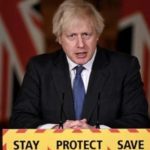 The new restrictions in the United Kingdom follow the arrival of a new COVID-19 variant. In late November, the Omicron variant first appeared in southern Africa.
The new restrictions in the United Kingdom follow the arrival of a new COVID-19 variant. In late November, the Omicron variant first appeared in southern Africa.
However, due to its genetic composition, experts worldwide have warned that this new strain may be able to circumvent vaccine protection. This has resulted in a flurry of travel prohibitions being imposed in the last few days.
With examples of the variation appearing in countries worldwide, including Belgium, Germany, Hong Kong, Israel, and others, the UK has acted quickly. Before returning a negative Day 2 PCR test, all overseas arrivals, regardless of vaccination status, will be required to self-quarantine. This implies that all travellers must have a PCR test within two days of their arrival.
Meanwhile, flights from Southern Africa have been suspended until the United Kingdom can re-establish its hotel quarantine system. Ten nations have been reinstated on the red list, restricting travel to UK citizens who must quarantine for ten days before entering.
The United Kingdom has yet to set a start date for PCR testing, which will replace the present Lateral Flow testing guidelines.
It has not yet been determined when the required self-quarantine will go into force. The Prime Minister’s Office stated in a statement, “Targeted actions will be implemented beginning next week.” This means that all arrivals this weekend will most likely be able to continue with their scheduled lateral flow testing.
To prevent the spread of the Omicron variant, additional precautions such as masks in stores and public transportation have been implemented.
While the United Kingdom has imposed certain limitations in reaction to the excessive pressure, there is a legitimate rationale for this. Travel between South Africa and the United Kingdom has surged dramatically since the former was taken from the red list in October. In recent weeks, this has allowed tens of thousands of travellers to enter the country.
To prevent the new variant from spreading uncontrollably, the UK government has also asked all those who have come from southern Africa in the previous ten days to do the PCR test and self-isolate. For the time being, the UK is trying to maintain its achievements with its vaccination rollout.
Many have also criticised the UK’s move as premature and needless. The Airlines Association of Southern Africa (AASA) is one such group that has advocated for additional research before imposing a flying restriction.
However, given the likelihood of vaccine resistance and increased virulence, the UK has put its foot down until further information is available. Other nations have prohibited travel from southern Africa, including the United States, the European Union, Singapore, and dozens more.
Select any text and click on the icon to listen! ByGSpeech
ByGSpeech
 ByGSpeech
ByGSpeech

















